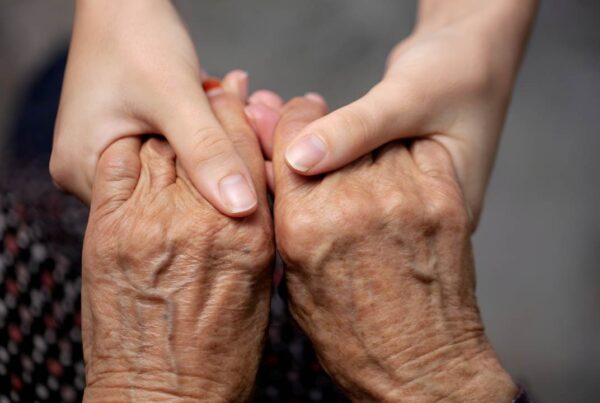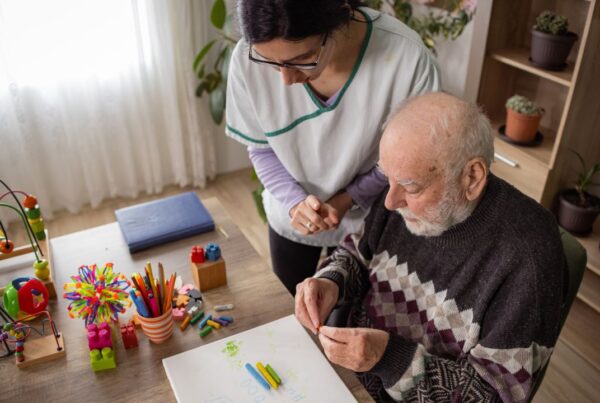Are you feeling overburdened under the endless responsibilities of caring for a loved one? Do you catch yourself looking for a break, to take a breath and gather your energy, while still ensuring your loved one receives the best care?
You’re not walking this path alone. Many caregivers face similar challenges, searching for solutions to balance their duties. We have a solution! Respite care is a key solution, offering temporary break, which gives benefits to both caregivers and seniors.
In our detailed blog, we’ll look at the importance of respite care for caregivers and seniors, explore its different forms, and discuss how it can help caregivers feel renewed and improve the quality of life for seniors.
So, without any further ado, let’s get into it!
What is Respite Care?
Respite care is like taking a pause. It gives caregivers a break from their daily routine of looking after someone. This can be for a few hours, days, or even weeks.
The idea is to give the person caring for a loved one some time to relax, handle daily tasks, or enjoy hobbies. This type of care can happen at home, in day-care centres, or in residential care facilities, depending on what’s needed.
What Are the Signs that the Caregiver is Stress or Burnout?
Being a caregiver can often lead to significant stress and eventually burnout. Caregiver stress is a state of physical, emotional, and mental exhaustion that may be accompanied by a change in attitude, from positive and caring to negative and unconcerned. Burnout happens when caregivers don’t get the help they need or try to do more than they’re able to. Recognising the signs of stress and burnout is the first step towards managing them.

Signs of Stress:
- Feeling overwhelmed or constantly worried
- Feeling tired most of the time
- Getting too much sleep or not enough
- Gaining or losing a lot of weight
- Becoming easily irritated or angry
- Losing interest in activities you used to enjoy
- Feeling sad
- Having frequent headaches, bodily pain, or other physical problems
- Abusing alcohol or drugs, including prescription medications
Signs of Burnout:
- Emotional and physical exhaustion
- Detachment and apathy towards caregiving duties
- Decreased satisfaction and sense of accomplishment
- Increased susceptibility to illnesses due to a weakened immune system
What is the Importance of Respite Care for Caregivers?
Respite care is a vital support service that provides caregivers with a temporary break from their caregiving responsibilities. This type of care is crucial for caregivers as it allows them to rest, recharge, and take some time for themselves, which is often much needed in the demanding role of a caregiver.
For caregivers, the role of looking after a loved one can be both rewarding and challenging. It often involves around-the-clock attention and can lead to physical and emotional exhaustion. This is where respite care steps in as a lifeline, offering caregivers the opportunity to take a breather, attend to personal errands, or simply have some ‘me time’. This break can significantly reduce the risk of caregiver burnout, a state of physical, emotional, and mental exhaustion that can have serious health implications.
Moreover, respite care provides caregivers with peace of mind, knowing that their loved one is in safe and professional hands. This assurance enables them to truly relax and refresh during their time off, which is essential for maintaining their own health and wellbeing. In turn, this ensures that they can continue to provide the best care possible for their loved ones.
What is the Importance of Respite Care for Seniors?
For seniors, respite care is equally important. It offers them an opportunity to interact with someone other than their primary caregiver, which can be a refreshing change and can help to enhance their social skills. This type of care can be provided in the senior’s home or in a specialised facility, depending on the level of care needed and the preferences of the senior and their caregiver.
Respite care can also be a path for seniors to receive specialised care and attention, especially if they have specific health needs that require professional expertise. It ensures continuity of care even when the primary caregiver is unavailable, thus maintaining the senior’s routine and reducing any potential stress or anxiety that might arise from changes in their care schedule.
Furthermore, respite care can offer seniors a variety of new experiences and activities that can enrich their lives. Whether it’s through social activities, exercise, or simply a change of scenery, these experiences can contribute to the senior’s overall sense of wellbeing and quality of life.

What Are the Types of Respite Care Services?
Respite care offers a variety of options to suit the diverse needs and preferences of caregivers and their loved ones. Understanding these options can help caregivers choose the best type of respite care for their situation:
In-Home Respite Care:
This involves a care professional coming to the caregiver’s home to provide care. It’s ideal for caregivers who prefer to keep their loved ones in a familiar environment. This type can range from a few hours of help to overnight stays, depending on the caregiver’s needs.
Adult Day Centres:
These are community-based centres where seniors can interact with others, participate in activities, and receive care during the day. They provide a safe and stimulating environment, giving caregivers a break during daytime hours.
Residential Respite Care:
This is when the person being cared for temporarily stays in a residential care facility. This option is suitable for caregivers who need a longer break, such as for a holiday or to attend to personal matters.
Emergency Respite Care:
This is a fast-response service available when caregivers face unexpected situations that require immediate attention. It ensures that their loved ones are looked after while they handle emergencies.
Specialised Respite Care:
For seniors with specific conditions, such as dementia, there are respite services that offer specialised care and activities to their needs. This ensures they receive the appropriate support and stimulation.
Companion Services:
Companion services for seniors involve someone spending time with the senior, engaging in activities, or simply chatting, providing company and a change of pace from their usual routine.
How To Plan and Implement Respite Care?
Planning and implementing respite care is a critical step in ensuring that both caregivers and care recipients receive the support and relief they need. This process involves several important considerations to ensure that respite care is effective, beneficial, and customised to individual needs.

Assess Needs:
Determine the specific needs and preferences of both the caregiver and the care recipient, considering the level of care required and any personal preferences for activities and care settings.
Explore Respite Care Options:
Familiarise yourself with the various types of respite care services available, such as in-home care, adult day care programs, or short-term stays in assisted living facilities, to find the best fit.
Determine the Duration and Frequency of Respite Care:
Based on the caregiver’s need for a break and the care recipient’s comfort, decide how often and for how long respite care will be needed.
Select a Respite Care Provider:
Choose a provider that matches the care recipient’s needs and preferences, ensuring they are qualified and experienced.
Provide Detailed Instructions:
Share important information about the care recipient’s routine, medical needs, and any specific care instructions with the respite care provider to ensure proper care.
Evaluate and Adjust:
After the respite period, assess the experience and make any necessary adjustments to improve future respite care sessions.
By following these steps, caregivers can ensure a beneficial and supportive respite care experience for both themselves and the care recipients.
In a Nutshell!
Respite care is really helpful for both primary caregivers and their loved ones. It gives caregivers a much-needed break and helps seniors enjoy different activities and meet new people. Planning ahead and knowing what options are out there is key. Looking after yourself is just as important as looking after someone else. If you’re looking for help with respite care, Hollycare is here to help. At HollyCare, we provide comprehensive and a wide range of Respite Care services, tailored according to the needs and preferences of caregivers and seniors, making sure everyone gets the support they need. Check out Holly Care to learn more about how our professional respite care can help you.
FREQUENTLY ASKED QUESTION
What is respite care?
Respite care provides temporary relief for caregivers, allowing them some time off from their caregiving responsibilities. It can be provided in the home, in day-care centres, or residential care facilities.
Why is respite care important for caregivers?
It’s crucial for preventing caregiver burnout by giving them time to rest and attend to their own needs, which in turn can improve the quality of care they provide.
Can respite care benefit seniors?
Yes, it benefits seniors by offering them a chance to socialise, engage in new activities, and sometimes receive specialised care, enhancing their overall quality of life.
How long can respite care last?
Respite care can vary in duration, from a few hours to several weeks, depending on the needs of the caregiver and the senior.
Are there different types of respite care?
Yes, respite care can be provided at home, in community day-care centres, or in residential facilities like nursing homes or assisted living facilities.
How do I know if I or my loved one needs respite care?
If you’re feeling overwhelmed, stressed, or fatigued from caregiving, or if your loved one could benefit from social interaction and a change of scenery, it might be time to consider respite care.






